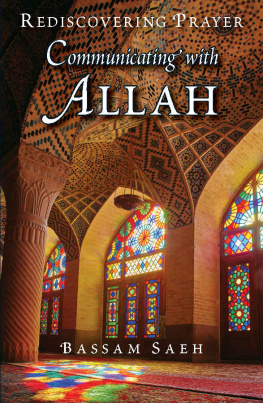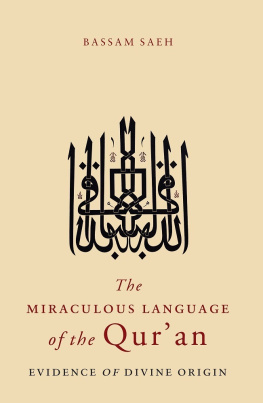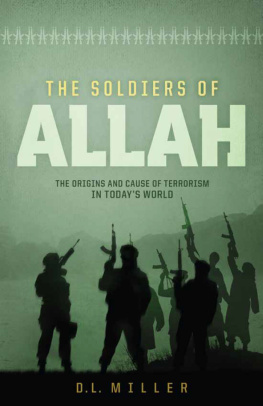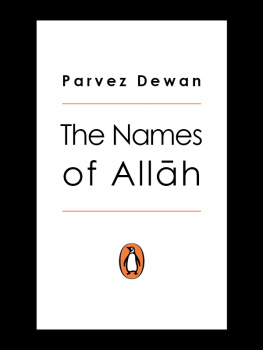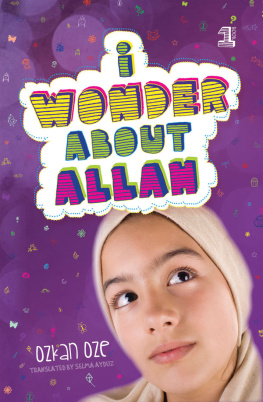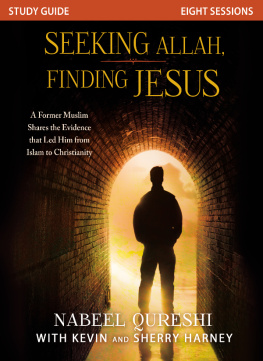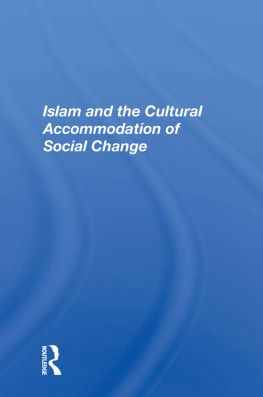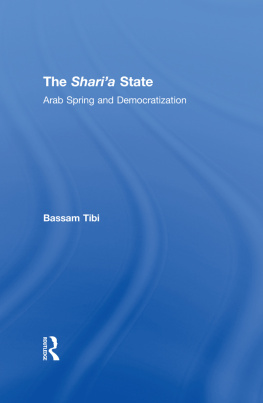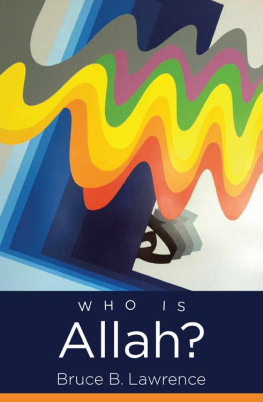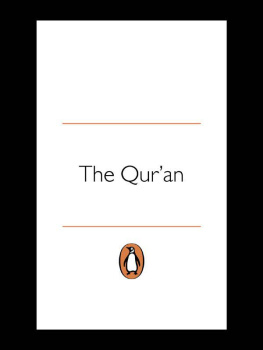Bassam Saeh - Communicating with Allah
Here you can read online Bassam Saeh - Communicating with Allah full text of the book (entire story) in english for free. Download pdf and epub, get meaning, cover and reviews about this ebook. year: 2018, publisher: Kube Publishing Ltd, genre: Religion. Description of the work, (preface) as well as reviews are available. Best literature library LitArk.com created for fans of good reading and offers a wide selection of genres:
Romance novel
Science fiction
Adventure
Detective
Science
History
Home and family
Prose
Art
Politics
Computer
Non-fiction
Religion
Business
Children
Humor
Choose a favorite category and find really read worthwhile books. Enjoy immersion in the world of imagination, feel the emotions of the characters or learn something new for yourself, make an fascinating discovery.
- Book:Communicating with Allah
- Author:
- Publisher:Kube Publishing Ltd
- Genre:
- Year:2018
- Rating:4 / 5
- Favourites:Add to favourites
- Your mark:
- 80
- 1
- 2
- 3
- 4
- 5
Communicating with Allah: summary, description and annotation
We offer to read an annotation, description, summary or preface (depends on what the author of the book "Communicating with Allah" wrote himself). If you haven't found the necessary information about the book — write in the comments, we will try to find it.
Communicating with Allah — read online for free the complete book (whole text) full work
Below is the text of the book, divided by pages. System saving the place of the last page read, allows you to conveniently read the book "Communicating with Allah" online for free, without having to search again every time where you left off. Put a bookmark, and you can go to the page where you finished reading at any time.
Font size:
Interval:
Bookmark:

A revised, abridged version of the Arabic original, Prayer Management
Communicating with Allah: Rediscovering Prayer
Published by
THE ISLAMIC FOUNDATION,
Markfield Conference Centre, Ratby Lane, Markfield,
Leicestershire, LE67 9SY, United Kingdom
E-mail:
Website: www.islamic-foundation.com
Quran House, Po Box 30611, Nairobi, Kenya
PMB 3193, Kano, Nigeria
Distributed by
KUBE PUBLISHING LTD
Tel: +44(0)1530 249230, Fax: +44(0)1530 249656
E-mail: info@kubepublishing.com
Copyright Bassam Saeh 2018/1439 A.H.
All rights reserved. No part of this publication may be reproduced, stored in a retrieval system, or transmitted in any form or by any means, electronic, mechanical, photocopying, recording or otherwise, without the prior permission of the copyright owner.
British Library Cataloguing in Publication Data
ISBN: 978-0-86037-715-3 Paperback
ISBN: 978-0-86037-720-7 Ebook
Translated and edited by Nancy Roberts
Cover design and Typeset by Nasir Cadir
Printed by
In the Name of Allah the Most Beneficent and the Most Merciful

This book has been written for the sole purpose of pleasing God Almighty.
Hence, the author requests everyone who reads this book to be generous with his or her comments, ideas, opinions and corrections so that future printings, in whatever language they appear, will be richer, more correct and more complete than the present one. To this end, readers are urged to write to the author at bassamsaeh@hotmail.com. When alterations or additions are made to the book, they will be attributed to those who proposed them so that they can enjoy a share in this ongoing gift to others.

C ONTENTS

O God, You know that in recording the thoughts that appear on these pages, all I have sought is Your face, and Your good pleasure in the hereafter. If I have sought You in the words of my limited, feeble human language, it is because, ordinary human being that I am, addressing ordinary human beings, these words are all I have, inadequate though they are to reflect Your glory or to contain Your majesty and greatness. Hence, should my steed stumble on the way, sending me tumbling to the ground, it was, at least, on my way to You that I fell. And if I have erred or my tongue slipped, You know well that from start to finish, my only desire has been to attain to the truth of what You Yourself desire. How can we mortal humans fathom the depths of Your wise purposes, or the mysteries You revealed to Your Prophet in his nocturnal ascent as he received Your Divine instructions to institute our five daily prayers, whose precious treasures and secrets he then shared with us on Earth?
O God, if I have hit the mark, then reward me with the best with which You reward Your righteous servants. And if, in my thinking, appraisal, interpretation or expression, I have missed the mark such that, in my zeal to convey Your majesty, I have spoken in haste or my pen has led me astray from the path of Your wisdom, then reward me based on what You know, glory be to You, of my desire to be illumined by Your guidance alone, and to drink from the springs of Your compassion for all. You are, and will ever remain, the Most-Forgiving, the Most-Pardoning, the Most Loving and Generous One, the Most Merciful of the merciful.
From one who ever seeks refuge in Your grace
Bassam Saeh
Fajr, Friday, 15 Jum a d a al-Ul a , 1436 AH
6 March, 2015 CE

Prayer management?! he asked in astonishment. Is prayer something one manages? I responded, Take the case of people who study business management and finance. They do so in order to make the best material investments, to realise the highest rates of return, despite profits being temporary lasting for the duration of their life only. So, why shouldnt we manage our spiritual affairs in the same vein, that is make the best investments in this life to reap the greatest profits in the hereafter, especially when we know the rewards of the hereafter to be eternal, and never depleted? Could there be anything worthier of a persons investment and proper management than a singular activity like Salah (canonical prayer) that is intended to serve the good of both this world and the next?
One day during the month of Ramadan the Saudi Students Club at Oxford invited me to give a lecture right before the breaking of the fast. I accepted and decided to speak on the topic of Salah management. At the scheduled time I went up to the pulpit. In my hand was a piece of paper on which I had jotted down two verses from the Quran and two sayings of the Prophet (pbuh) on Salah. After delivering the accustomed greeting, I unfolded the piece of paper and hurriedly read its contents, so fast in fact that the audience could hardly understand a word I had said. Within one minute I had finished and was heading for the door. On my way out I blurted, Pardon the rush, but I have an appointment to keep with people a lot more important than you are. Goodbye! As I made a beeline for the door, I glanced out of the corner of my eye and noticed the faces of my tongue-tied listeners registering a mixture of protest, bewilderment, disbelief, and just possibly, offence and disapproval.
An understandable spontaneous human reaction given my impolite conduct towards people I had agreed to meet with. So, taking this a step further, what do we suppose the reaction would be if I conducted myself in the same manner towards God?
A few seconds later I returned and apologised to the students for my behavior, saying, Are you angry with me? Well, I have acted this way towards you once, and now I have come back to apologise. But the fact is, we act this way towards God an average of five times a day, yet without a single pang of conscience, and without a single word of apology!
What a great opportunity, what a sweet rendezvous we miss out on when we scrimp on the time we give to God and offer our prayer in the same hurried manner with which I addressed the students if, that is, it deserves to be called prayer at all.
You will also notice that rather than reciting the Quranic verses and sayings of the Prophet to the audience from memory, I simply read them out from a piece of paper. But which would have had more impact on the listeners reading from a piece of paper, or speaking contemporaneously? Ordinarily we perform Salah in the same way, that is, as if we are reading from a piece of paper, and as such, the words come out of our mouths, and not out of our hearts.
The Almighty has presented us with a tremendous gift, a vast investment project served on a platter of gold, yet we spurn it in contempt. As a result, we end up with nothing but what we might reasonably expect, namely, rejection and possibly even chastisement, for responding to Gods gift with such ingratitude.
We need to realise within us the value of this gift and teach it to our children. That is, if we want our children to go beyond memorisation and imitation and join the ranks of true thinkers and innovators, we need to rediscover both ourselves and our forms of worship. Then we need to teach our children a way of thinking that will help them to rediscover everything around them, including the array of awe-inspiring inventions at their disposal.
I remember once in the late 1940s, as a child of seven or eight years old, my mother coming home from a visit to a Christian family in Lattakia telling us of an amazing radio that their son had brought back from France on completion of his studies there. This radio she informed us had a window in the front through which you could see the person who was speaking! I could not sleep that night for excitement, my childs imagination thinking of the poor radio announcer who I envisaged stuffed into the little box. How had they managed to get him inside it? They must have had to find somebody with a body tiny enough to fit. But then, my childs mind wondered, how would he be able to get out to go to the bathroom? Scores of questions of this sort hounded me all that night. Years later, I realised of course the device my mother had been talking about was a television!
Next pageFont size:
Interval:
Bookmark:
Similar books «Communicating with Allah»
Look at similar books to Communicating with Allah. We have selected literature similar in name and meaning in the hope of providing readers with more options to find new, interesting, not yet read works.
Discussion, reviews of the book Communicating with Allah and just readers' own opinions. Leave your comments, write what you think about the work, its meaning or the main characters. Specify what exactly you liked and what you didn't like, and why you think so.

